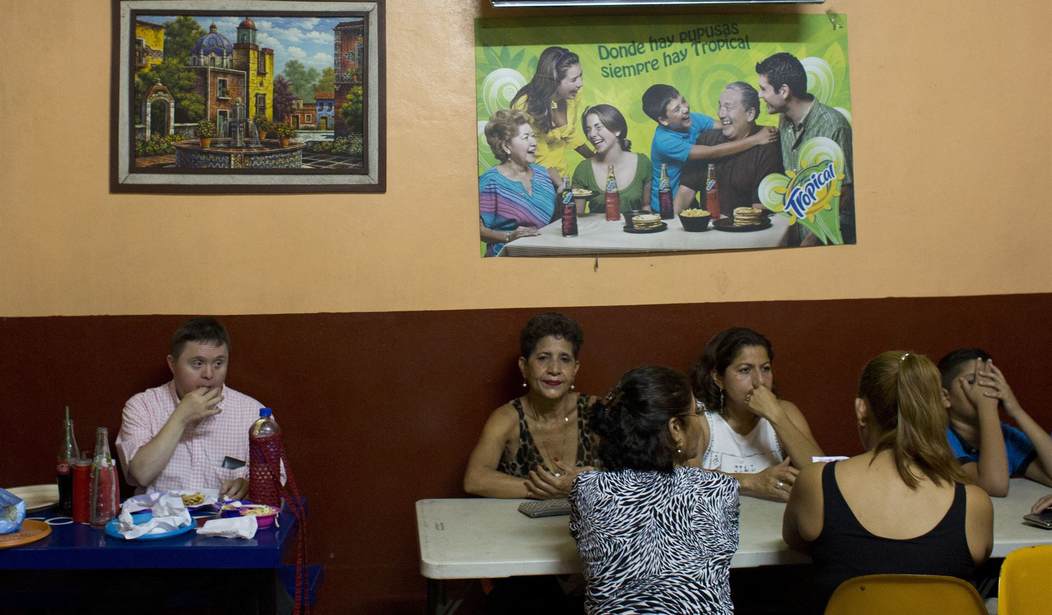I suppose we can simply flag this story as the latest entry in our series on how the pandemic has changed America and what the “new normal” looks like. And we’re once again looking at issues involving the restaurant industry, arguably among the hardest hit during the lockdowns. Out in Chicago, diners are encountering some new policies put in place by restaurants after the city began to reopen, and eateries in other areas are quickly following suit. “Mandatory minimum” bills are now becoming a regular feature. If you show up at some high-end restaurants and are seated, your bill begins with a $100 charge before you even order. And that’s not for the table, either. It’s 100 bucks per person. And then there are the “reservation deposits” that we’ll get to in a moment. (CBS Chicago)
When Howard Tolsky went online to book a dinner at Steak 48, at 615 N. Wabash Ave. near the Mag Mile, he immediately started losing his appetite for any experience there.
“It’s a shame,” Tolsky said.
It was all because there was a $100 minimum for himself, his wife, his and mother-in-law – each, per person.
“I figured, well, we’re not going to spend $300,” Tolsky said. “We might spend $250. But I don’t want to spend $300 dollars on a meal that costs $250.”
I suppose we should hear from the restaurant owner first and find out why these minimum bill policies are remaining in place even after the establishment is fully reopened. Their statement reads, “Like many in our industry, we had to make some updates to our policies. The $100 per person minimum will remain in effect to provide the ability to be successful as a steakhouse designed for the full sit-down experience and support our restaurant’s operations and staff.”
As I alluded to above, other Chicago restaurants are demanding some sort of insurance against cancellations. At another eatery called Maple & Ash, when you call or go online to make a reservation, you’ll be asked for your credit card number and charged a non-refundable $100 per person deposit. If your plans change and you want to cancel or simply don’t show up, they keep the money. Maybe it’s just me, but that sort of policy would probably make me less likely to make a reservation and either take my chances by showing up without one or simply going to a less popular place to eat.
I suppose the owner of Steak 48 and the other restaurants doing this can set their own policies as they wish and let the dining public vote with their wallets. But the first question that comes to mind is how they managed to turn a profit before the pandemic without minimum bills and reservation deposits, but now they can’t. During the government-mandated shutdowns and partial reopenings, I could understand it. It’s a very competitive industry and when you can’t fill all of your tables and don’t know how many workers will show up on any given day, you need some sort of security. But if we’re returning to “normal” now, this seems like an odd and likely unpopular policy to make permanent.
My wife and I admittedly don’t live in or near one of the bigger cities, so restaurant prices tend to be a bit lower than you’ll find in Chicago or New York City. But still, when we go out to one of the nicer steak houses in the area, it’s not unknown for us to run up a bill in the range of $100 each. (That depends if we order wine, an appetizer, dessert, etc.) And we tend to be generous tippers. But what if one of the people in your party is in the mood for something light and just orders a salad or some appetizers and a cup of coffee? What if they just want a cheeseburger? I would imagine that getting handed a bill for $100 for that is going to generate a lot of resentment, not to mention negatively impacting the tip that the wait staff receives. And if your eatery wants to hit me with a $100 “deposit” as soon as I ask about a reservation, I’ll probably start eating elsewhere.
If this is part of the “new normal,” I don’t think it’s going to go over very well. But the free market should handle this issue as well. If the restaurants not having such policies in place have lines of customers forming around the block and the ones charging these fees are sitting mostly empty, the problem will correct itself soon enough.







Join the conversation as a VIP Member